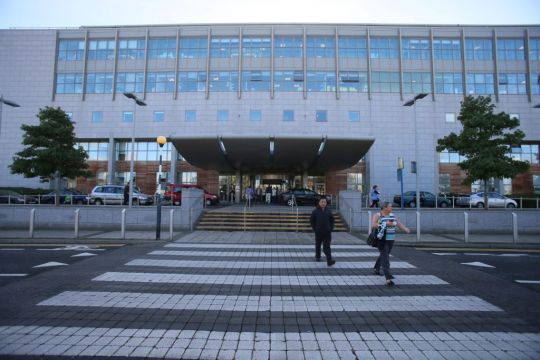The family of a man who allegedly fell while a patient at St Vincent’s University Hospital, Dublin and sustained an upper leg fracture but later died has settled four High Court actions over his death.
Edward Hyland (60) was in the hospital for liver transplant assessment when it is claimed he fell on the ward on the night of February 8th, 2017.
Mr Hyland suffered a thigh-bone fracture and had to have surgery but the High Court heard he deteriorated afterwards and died three days after the operation.
Counsel for the Hyland family, Richard Kean SC with Esther Earley BL, told the court it was their case that two tragic events unfolded.
Mr Kean said Mr Hyland was assessed in hospital to be at high risk for falls. He fell in the ward late at night and suffered a thighbone fracture. After the fall Mr Hyland was found to have his slippers on the wrong feet, counsel said.
Mr Kean said Mr Hyland required surgery as a result of the fracture, but he said there was a very poor outcome and the grandfather of seven died a number of days later.
Mr Kean said all claims and all aspects of the case were denied by the hospital.
The case had first been brought against St Vincent’s University Hospital by Mr Hyland’s widow, Eileen Hyland, of Blackhorse Avenue, Dublin 7. However, Ms Hyland passed away in October this year and the case over the death of Mr Hyland was now being brought by their daughter, Melissa Hyland. Three nervous shock actions were also before the court and had also been settled.
Mr Hyland was admitted to St Vincent’s Hospital Liver Unit on February 2nd, 2017.
It was claimed that despite the classification as a high fall risk, he was allegedly permitted to have an unwitnessed fall on the ward on the night of February 8th.
He had surgery the next day but died on February 12th, 2017.
In the proceedings, it was claimed Mr Hyland had allegedly been allowed to mobilise unaided when they knew or ought to have known that he had a history of falls, had mobility issues and had been assessed as being at a high falls risk and was therefore at a high risk of falling and sustaining injury.
It was claimed there was a failure to exercise the level of care, skill and diligence that Mr Hyland was entitled to expect in relation to his diagnosis, care and treatment while he was an inpatient in the hospital.
It was also alleged that Mr Hyland had been assessed as fit for surgery and the surgery proceeded at a time when he was allegedly unfit to undergo it.
All the claims were denied.
Noting the settlement and the division of the mental distress €35,000 solatium payment, Mr Justice Paul Coffey said it was a very tragic case for the Hyland family, and it was made all the more poignant because Mr Hyland’s wife had died in October this year.
He extended his sympathy to the Hyland family on the death of Mr Hyland and later his wife.







